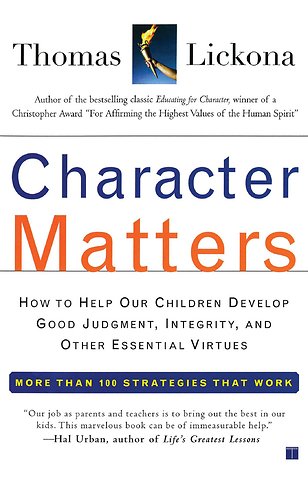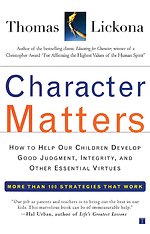Character Matters
How to Help Our Children Develop Good Judgment, In
Paperback EN 2025 1e druk 9780743245074Samenvatting
Award-winning psychologist and educator Thomas Lickona offers more than one hundred practical strategies that parents and schools have used to help kids build strong personal character as the foundation for a purposeful, productive, and fulfilling life.
Succeeding in life takes character, and Lickona shows how irresponsible and destructive behavior can invariably be traced to the absence of good character and its ten essential qualities: wisdom, justice, fortitude, self-control, love, a positive attitude, hard work, integrity, gratitude, and humility.
The culmination of a lifetime’s work in character education from one the preeminent psychologists of our time, this landmark book gives us the tools we need to raise respectful and responsible children, create safe and effective schools, and build the caring and decent society in which we all want to live.
Specificaties
Lezersrecensies
Inhoudsopgave
Vaak samen gekocht
Anderen die dit kochten, kochten ook
Rubrieken
- advisering
- algemeen management
- coaching en trainen
- communicatie en media
- economie
- financieel management
- inkoop en logistiek
- internet en social media
- it-management / ict
- juridisch
- leiderschap
- marketing
- mens en maatschappij
- non-profit
- ondernemen
- organisatiekunde
- personal finance
- personeelsmanagement
- persoonlijke effectiviteit
- projectmanagement
- psychologie
- reclame en verkoop
- strategisch management
- verandermanagement
- werk en loopbaan









